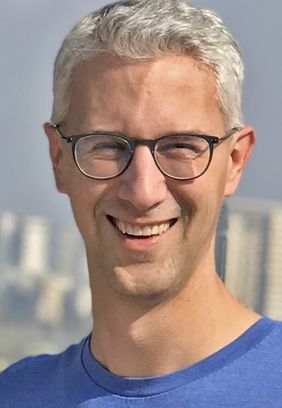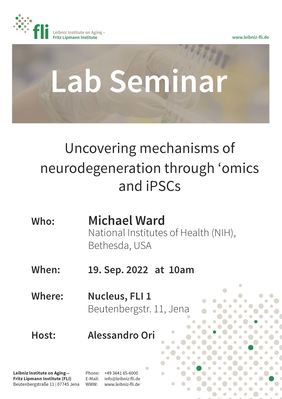Michael Ward's research group is investigating the cellular and molecular mechanisms underlying two related neurodegenerative diseases: frontotemporal dementia (FTD) and amyotrophic lateral sclerosis (ALS). Recently, using neurons derived from reprogrammed stem cells (iPSC), the research group was able to show that the transport and translation of RNA into proteins at sites in the axon far from the nucleus is essential for neuronal functions. In this process, so-called RNA granules are transported over long distances by making use of lyosomes, another type of cell organelle. This process is triggered by a protein produced by the gene ANX11, which is associated with the disease ALS. Therefore, Ward suspects that the malfunction of local translation contributes to the development of ALS.
Michael E. Ward has been conducting research at the in Bethesda, Maryland, USA, - part of the NIH - since 2015. The long-term goal of is to develop a therapy for neurodegenerative diseases. In addition to his research, the physician and neuroscientist sees patients at the NIH clinic in Bethesda. He also leads the (iNDI) , which aims to improve and standardize cell models for research into Alzheimer's disease and other forms of dementia.
Title of the talk: Uncovering Mechanisms of Neurodegeneration through Omics and iPSCs
When: Monday, September 19, 2022, 10 a.m.
Where: Leibniz Institute on Aging - Fritz Lipmann Institute (FLI), Beutenbergstr. 11, Jena, Gebäude FLI 1, Raum „Nucleus“ and online
Host: Alessandro Ori, Group Leader: „Aging of Protein Complexes“
In case you can’t make to the FLI, please join us online:
https://zoom.us/j/94319100350?pwd=L3ZhZmhMQ1dzMHpjWW9Ea0tyZm9EZz09
Meeting ID: 943 1910 0350
Passcode: 262607
Lab Seminar with Michael E. Ward: Elucidating mechanisms of neurodegeneration using omics analysis and stem cells (iPSCs)
Seminars













